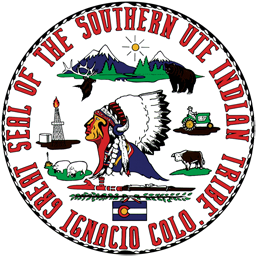Title V Operating Permit Program
On March 2, 2012, the United States Environmental Protection Agency approved the Tribe’s Title V Program application. This means that the Tribe has full authority to implement and administer its 40 CFR Part 70 Operating Permit Program for Title V sources within the exterior boundaries of the Reservation from this date forward.
The 1990 amendments to the Clean Air Act created the Operating Permit Program under Title V of the Act. Title V operating permits are legally enforceable documents issued to stationary sources after a source has begun operation. Operating permits outline all of the air pollution regulatory requirements that apply to the source. The program does not allow for the addition of new emissions control requirements, but rather clarifies the air pollution control obligations of major sources by compiling in one document all of a source’s compliance requirements. The intent is that by including all applicable requirements in one permit, it will be easier for the source owner, the regulatory agency, and the public to determine if the source is in compliance. The permits contain monitoring, recordkeeping, and reporting requirements designed to ensure that the source knows when it is and is not in compliance. Owners of sources with operating permits must certify that the source is in compliance each year, and the permits must be renewed every five years. Each operating permit that is issued is subject to public comment and offers the public an opportunity for a hearing.
Please visit the links below for a listing of Title V permits currently issued by the Southern Ute Indian Tribe, to obtain Title V permit application and compliance forms, or to view current public notices.
Who Needs to Obtain a Title V Permit?
A Title V source of air pollution is a source that emits or has the potential to emit:
- 100 tons per year or more of any regulated air pollutant,
- 10 tons per year or more of any one hazardous air pollutant (HAPs), or
- 25 tons per year or more of any combination of hazardous air pollutants.
Please review RAC 2-104 for further details on permitting applicability.
Title V Program Regulations
The Southern Ute Indian Tribe/State of Colorado Environmental Commission’s Reservation Air Code contains the Tribe’s Title V regulations that apply within the exterior boundaries of the Southern Ute Indian Tribe Reservation.
Enforcement Procedures and Penalty Manual (EPP)
Guidance Documents Issued by the Air Quality DivisionAir
The Air Quality Division issues Technical Guidance Bulletins to clarify the program’s interpretation and compliance expectations of federal and tribal air quality regulations. Currently-issued Technical Guidance Bulletins can be reviewed below:
- Technical Advisory Bulletin #1 Criteria for excluding de-commissioned emission units from a facilities potential to emit calculations.
- Technical Advisory Bulletin #2 Extended natural gas sampling frequency for demonstrating compliance with the glycol dehydration unit area source exemption at 40 CFR 63.764(d).
- Technical Advisory Bulletin #3 Timeline for conducting performance testing following a catalyst change under 40 CFR Part 63, Subpart ZZZZ.
- Technical Advisory Bulletin #4 COVID-19 Final HTML version
Historical Documents
Links to Other Colorado Air Quality Agencies
- Colorado Department of Public Health and Environment-Air Pollution Control Division
- EPA Region 8 Air Permitting
Title V Staff
Permitting
Matt Wampler, Air Quality Program Manager – Permitting & Regulatory
970-563-2202
Mark Lamoreaux, Air Quality Scientist I – Permitting
970-563-2273
Compliance and Enforcement
Jacob Stokes, Air Quality Scientist II – Compliance
970-563-2229
Rowan Kinney, Air Quality Scientist II – Compliance
970-563-2219
Sharon LeBeau, Air Quality Scientist – Compliance
970-563-2235
